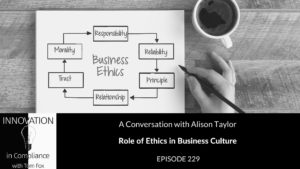As the villain Le Chiffre says to James Bond just before he began to torture him in the movie version of Casino Royal, “Sometimes the old ways are the best.” He then begins to beat Bond’s family jewels with a knotted hemp rope. It is one very painful scene to watch.
I thought of the movie line, but not the torture scene, when I read the most recent Foreign Corrupt Practices Act (FCPA) enforcement action where the Korean entity KT Corporation settled with the Securities and Exchange Commission (SEC) via a Cease and Desist Order (the Order) for “disgorgement of $2,263,821, prejudgment interest of $536,457, and a civil money penalty in the amount of $3,500,000” bringing the total fine and penalty to just over $6.3 million. The reason for the prescience of the Le Chiffre line was that the first bribery schemes in South Korea largely revolved around cash. We have not seen those ‘little brown bags’ of cash in too many recent FCPA enforcement actions. This makes the KT Corp. matter worth looking at in some detail.
In terms of financial penalties, the total amount is obviously low. However, there are multiple lessons to be garnered from the enforcement action that are worth exploring. Over the next few blog posts, I will be taking a deep dive into the enforcement action and exploring it in some detail.
Background
First a word on jurisdiction as you may be asking why is the US SEC bringing a FCPA enforcement action against Korea’s largest telecoms operator? For KT Corp., the answer is that it has American Depositary Shares, (ADRs) which are registered with the SEC and trade on the New York Stock Exchange (NYSE). Additionally, KT Corp. files periodic reports, including Form 20-F, with the SEC. If you represent companies which have ADRs in the US, you might want to inquire if they have any internal controls around the FCPA and whether they even have a compliance program.
According to the SEC Press Release announcing the resolution, KT Corp. is “South Korea’s largest telecommunications operator, engaged in multiple schemes to make improper payments in Korea and Vietnam.” However, the company did not have “sufficient internal accounting controls over charitable donations, third-party payments, executive bonuses, and gift card purchases.” This failure of internal controls leads to numerous compliance failures and FCPA violations where “high-level executives, were able to generate slush funds that were used for gifts and illegal political contributions to government officials in Korea who had influence over KT Corp.’s business. Other employees were able to make payments in connection with seeking business from government customers in Vietnam.”
Moreover, as specified in the Order, “the misconduct involved former high-level managers and executives and occurred under circumstances whereby KT had no relevant anti-corruption policies or procedures with respect to donations, employment candidates, vendors, subcontractors, or third-party agents. In certain instances, this allowed KT employees to provide benefits improperly to government officials and to seek business from government customers. As a result of this misconduct, KT violated the books and records and internal accounting controls provisions of the FCPA.”
Charles Cain, Chief of the SEC Enforcement Division’s FCPA Unit, was quoted in the SEC Press Release for the following, “For nearly a decade, KT Corp. failed to implement sufficient internal accounting controls with respect to key aspects of its business operations, while at the same time lacking relevant anti-corruption policies or procedures. Issuers must be sure to devote appropriate attention to meeting their obligations under the FCPA.” Finally, “in November 2021, South Korean authorities indicted KT Corp. and 14 executives for criminal violations related to illegal political contributions from the slush funds.”
Culture
There were multiple bribery schemes involving KT Corp., which we will detail at some length in this series. However, one thing that is made clear in this Order is the complete and total failure of a culture of compliance at KT Corp. or at least something coming close to an appearance of doing business by not paying bribes. First was the length of the bribery schemes detailed in the Order, which stated, “From at least 2009 through 2017, high-level executives of KT maintained slush funds, comprised of both off-the-books accounts and physical stashes of cash, in order to provide items of value to government officials, among others. These included gifts, entertainment and, ultimately, illegal political contributions to members of the Korean National Assembly serving on committees relevant to KT’s business.”
When this slush fund story was broken open by the Press in South Korea, the company did not take the opportunity to self-disclose, remediate the deficiencies discovered or even stop the bribery and corruption. Instead, KT Corp. officials “devised a new method to continue generating a slush fund.” Clearly this was a business that was committed to feathering its nest via bribery and corruption.
Join us tomorrow where we take a deep dive into the bribery schemes.






